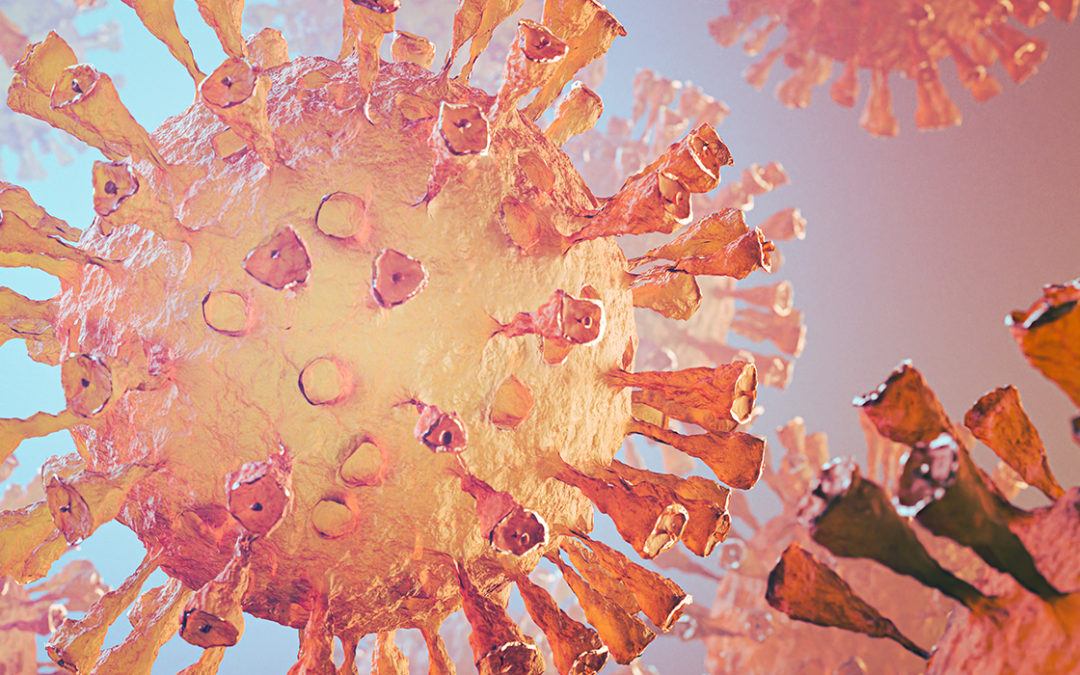While most people diagnosed with COVID-19 have only mild symptoms some can go on to suffer post viral infection symptoms…Long COVID.
WHAT IS ‘LONG COVID?’
Long COVID is not a new condition, it’s been seen with other viral illnesses. Details of how many people are affected by long Covid are still emerging.
The Office for National Statistics estimates that 1.1 million people in the UK were reporting long Covid symptoms in the four weeks to 6 March 2021. These were defined as symptoms that had lasted more than four weeks from initial infection, though for more than two thirds of these people the symptoms had lasted more than 12 weeks. A fifth said their symptoms limited their daily activities a lot.
A study led by the University of Leicester of just over 1,000 people who had needed treatment in hospital for Covid found that the majority (seven in 10) had not fully recovered five months after they were discharged.
LONG COVID’ LOOKS DIFFERENT FOR EVERYONE
COVID-19 symptoms vary, common Long COVID symptoms are:
- Fatigue and loss of energy
- Fluctuating fever
- Breathlessness with or without a continuing cough
- Muscular, joint, and generalised pain
- Brain fog and problems with memory or concentration
- Headache
- Sleep disturbance
- Irritability and mood swings
- Low mood and depression
- Stress and anxiety
- Weakness during exercise and daily activities
- Reduced muscle strength
- Problems with your voice or swallowing
- Low exercise tolerance and difficulties carrying out physical activity
- Loss of taste and smell
- Abdominal pain, nausea, and diarrhoea
- Skin rashes
- Cardiac problems including palpitations and pain
Keep in mind Long COVID is different for everyone
LONG COVID SUFFERERS MAY HAVE A SHORTNESS OF BREATH
Research published by the European Lung Foundation in September 2020 suggests lung tissue can heal up post-COVID infection but much of the shortness of breath may be coming from chronic fatigue syndrome or even anxiety, both of which often cause breathlessness despite normal lung function.
MIDDLE-AGED WOMEN MAY BE MORE PRONE TO LONG COVID
While it’s been well-documented that older adults suffer greater health consequences of COVID-19, an October 2020 study found that middle-aged women may fare worse in the long term.
Generally, older age and having multiple symptoms in the first week are associated with an increased risk of remaining health issues.
However, other research showed that women are twice as likely to have COVID symptoms that last for over 30 days compared to men.
LONG COVID AND EXERCISE
It is normal to feel tired, weak, or short of breath when you are recovering from COVID-19 but being active may help you to recover quicker.
A study has suggested regular exercise can improve the recovery of people with lasting symptoms of Covid-19. Researchers in Leicester found a six-week rehabilitation programme helped long Covid patients with breathing problems, fatigue and “brain fog”.
DON’T EXPECT TO GO BACK TO WHERE YOU WERE PRE-COVID. RESET YOUR EXPECTATIONS
Covid can wreak havoc with your lungs and cardiovascular system. Not only that, if you have spent time in hospital, or been bed-ridden, then you will have spent extended periods of time in positions that are not normal for the body and which can cause significant muscular or joint problems. You may have been healthy and active before, not thinking twice about walking to the shops or jogging for a bus. The chances are, what you took for granted before is going to be a challenge now, so reset your expectations and focus on daily little wins.
START SLOW
Increase your activities slowly. Regular exercise is good for you but keep in mind that it will take you time to get back to your normal activities. You should:
- Start slowly and re-introduce activities gradually.
- Set yourself realistic targets each week.
- Rest when you feel tired.
FOCUS ON WELLNESS, BREATHING AND AEROBIC CAPACITY
It might sound obvious, but try and get some fresh air and vitamin D. Even a little walk at lunchtime can make a world of difference, especially right now as it gets dark so early. Focusing on breathing deeply, filling the lungs with oxygen, and getting the heart pumping, will help a lot. The heart and lungs are the organs hit hardest by Coronavirus, so improving their function is the biggest opportunity to reduce the level fatigue you’re experiencing. The more oxygen you can get into your lungs, and have that travelling around your body, the better.
IF YOU FEEL BREATHLESS
It is important to monitor your breathlessness when you exercise. You should exercise at a level where you are slightly out of breath but still able to talk.
Set short realistic goals at first. If you are very weak, your goal might be to walk to the toilet. Increase the distance when you feel ready.
Not being able to do the things you want to can be incredibly frustrating, but recovery can be a long process. Your fitness and mobility will come back – but it’s important to give the process time. Some simple stretching and mobility work can improve blood flow, help improve posture and reduce tension. Listen to your body too, if it needs some rest, give it rest, and don’t be hard on yourself for doing so.
Even modest improvement in fitness can reduce symptoms of breathlessness and can aid recovery.
LONG COVID… LONG TERM
As with any new illness, only time and a coordinated effort can give us a better understanding of Long COVID and its long-term effects.
If you continue to feel unwell, try seeking out one of the post-COVID clinics being set up in most major medical centres. These clinics help address long-term symptoms, including difficulty breathing, brain fog and memory loss and heart issues.
3d have put together a Long COVID programme and we can help you progress through Long COVID. For more information, please contact your local 3d club manager or email 3dcovidcare@3dleisure.com

